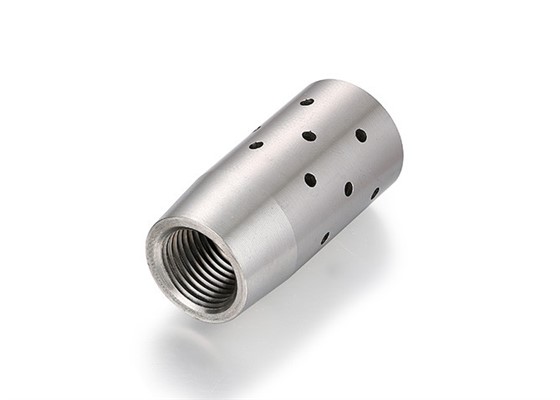Metal stamping parts are lightweight, thin in thickness, and have good rigidity. Its dimensional tolerance is guaranteed by the mold, so the quality is stable and generally does not require mechanical cutting before use. The metal structure and mechanical properties of cold metal stamping parts are superior to those of the original blank, with a smooth and beautiful surface. The tolerance level and surface condition of cold metal stamping parts are superior to those of hot metal stamping parts.
Large scale metal stamping production of small and medium-sized parts generally uses composite molds or multi station continuous molds. Centered around modern high-speed multi station press machines, equipped with material unwinding, correction, finished product collection, transportation, mold storage, and rapid mold changing devices, and controlled by computer programs, a highly efficient fully automatic metal stamping production line can be formed. By using new mold materials and various surface treatment technologies, improving the mold structure, high-precision and long-life metal stamping dies can be obtained, thereby improving the quality of metal stamping parts and reducing the manufacturing cost of metal stamping parts.
The process and equipment of metal stamping production are constantly developing. In addition to the traditional use of press machines and steel molds to manufacture metal stamping parts, various special metal stamping forming processes such as hydraulic forming, spin forming, superplastic forming, explosive forming, electrohydrodynamic forming, and electromagnetic forming are also rapidly developing, raising the technical level of metal stamping to a new height. The special metal stamping forming process is particularly suitable for the production of small and medium-sized (even dozens of pieces) parts with multiple varieties. For ordinary metal stamping processes, simple molds, low melting point alloy molds, grouped molds, and metal stamping flexible manufacturing systems can be used to organize the metal stamping processing of small and medium-sized batch parts with multiple varieties.
In summary, metal stamping has a series of advantages such as high productivity, low processing costs, high material utilization, simple operation, and ease of mechanization and automation. By using composite processes such as metal stamping, welding, and bonding, the structure of the parts is made more reasonable and the processing is more convenient. It is possible to manufacture more complex die-casting structural parts using simpler processes.


